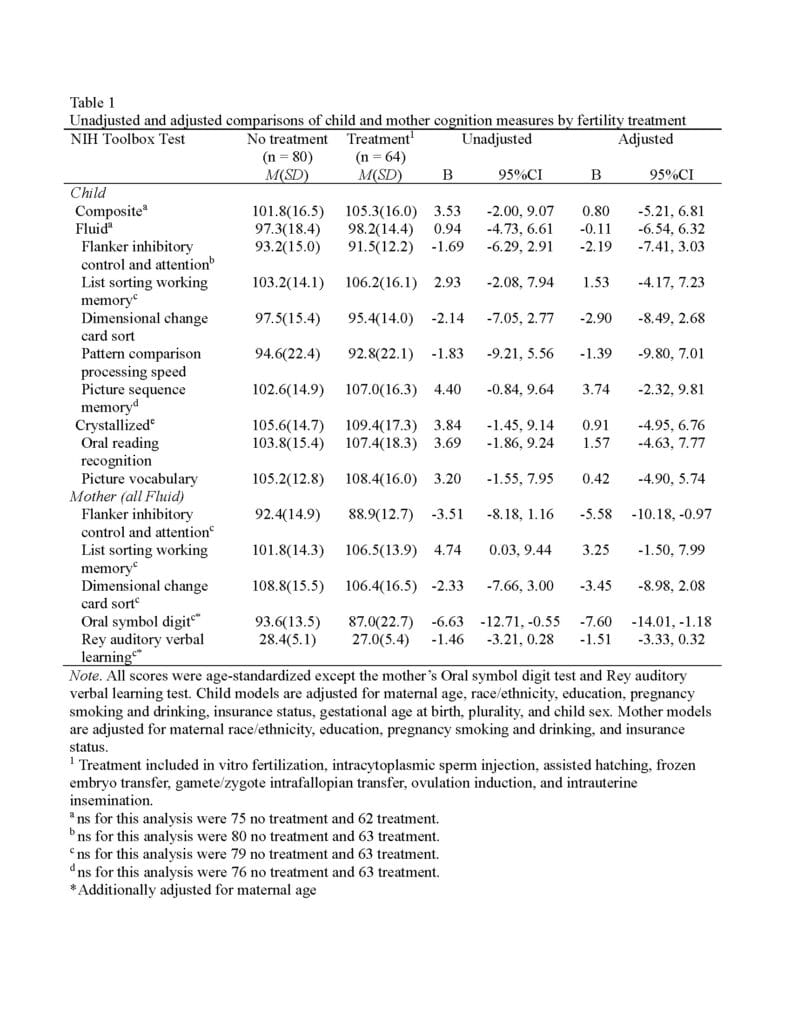Perinatal & Pediatric
Fertility treatment and offspring neurocognitive functioning at 10 years Diane L. Putnick* Diane Putnick Akhgar Ghassabian Thomas G. O’Connor Edwina H. Yeung
Some research suggests that children conceived with fertility treatment have increased risk of attention-deficit/hyperactivity disorder (ADHD) compared to those conceived without. However, subfertility rather than treatment may be the operative factor.
The Upstate KIDS longitudinal birth cohort of children conceived without and with fertility treatment was followed through 10 years (M=10.0; SD=.6). Children living within 2 hours of 4 clinic sites across New York state were invited for in-person assessments of neurocognitive functioning using the NIH Toolbox Cognition Battery (N=166). At those visits, 142 mothers and 144 children (87%; 99 singletons and 45 randomly-selected twins from the pair) completed the NIH Toolbox, validated tests measuring inhibitory control and attention, working memory, cognitive flexibility, processing speed, episodic memory, reading, and receptive vocabulary.
Analyses of variance and covariance estimated mean differences and 95% confidence intervals of cognitive scores among treatment (n=64) and no-treatment (n=80) groups. Groups were similar on child sex and age. Mothers in the treatment group were older, more likely to be college educated, and have private health insurance. There were no significant differences in child cognition for those conceived without and with fertility treatment (Table 1). Mothers who used fertility treatments scored lower on the flanker inhibitory control and attention and oral symbol digit test than nonusers after adjustment (Table 1), but similarly on other scales.
Findings suggest that children born following fertility treatment did not differ from those born without fertility treatment. However, mothers who used treatment scored lower on two tests measuring inhibitory control and attention and processing speed, which are core features of ADHD. If replicated, these findings suggest fertility treatment does not put children at risk for ADHD, but underlying subfertility may be associated with ADHD features.

